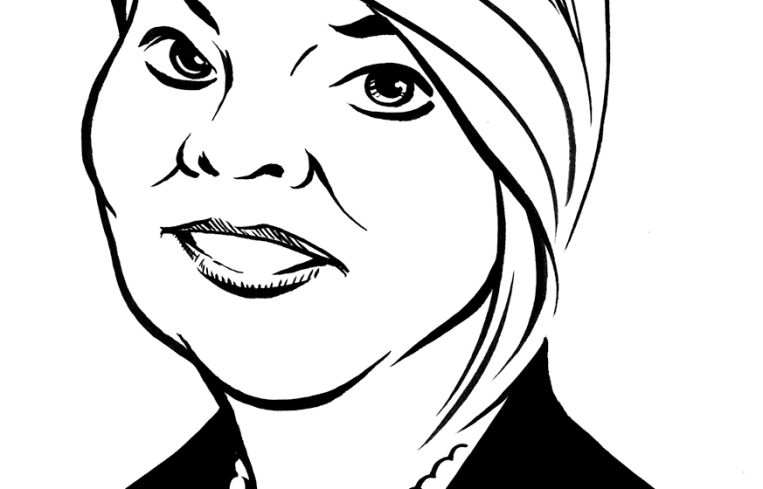The CMBS Borrower Experience’s Worst Offenders
By Ann Hambly December 4, 2019 11:26 am
reprints
There has been a lot of focus by trade associations, committees, task forces and others over the past few years on improving the borrower experience in CMBS. Yet I have not spoken to one borrower who thinks the experience has improved at all; we must find a way to make the CMBS borrower experience better if the CMBS industry is to continue thriving.
My whole career has been focused on helping CMBS borrowers obtain lender consent on whatever the borrower needs for their property. That can be anything from a change of ownership to lease approvals, releases of reserve funds or full-blown modifications.
I wanted to share some of the biggest problem areas where the borrower experience in CMBS needs to improve.
Cash management processing: One of the most common borrower complaints in CMBS is the handling of cash management accounts: not the fact that the loan is in cash management, but the actual handling of the accounts. One particular frustration comes about when there’s a weekend in the middle of the whole process, like what happened in October 2019. Servicers typically reach into the cash management account to pull their payment on about the fifth of the month. In October, the fifth fell on a weekend, so the servicers pulled their payments on the Friday before the weekend, Oct. 4. However, not all tenants’ payments had been received by that date. One borrower I work with was contacted and told to pay the shortfall for the payment or the loan would be in default. Most borrowers wired the funds and then the very next business day, the tenants’ payments were posted. But when borrowers then asked for the funds back, servicers refused to refund that money to the borrower. So borrowers are often out hundreds of thousands of dollars for the month, all because the servicer pulled its payment the Friday before the fifth instead of the Monday after the fifth.
Cash management and cash sweep triggers: Many, many well-performing loans are only in cash management to begin with because the detailed definitions in the loan agreement allow the servicer to calculate the debt service coverage ratio (DSCR) based on factors that have nothing to do with the actual property. For example, say a property is 90 percent leased and the loan agreement allows the servicer to use the lesser of (a) property occupancy or (b) market occupancy. And let’s say the market has an 80 percent occupancy rate. The DSCR calculation will use an artificial 80 percent occupancy. There are many adjustments made based on these definitions that cause highly performing loans to go into cash management — often to the great surprise of the borrower.
Getting out of cash management is tricky and typically takes two consecutive months of the DSCR being above a certain threshold. Borrowers need to be vigilant about the definitions in the loan agreement for the calculation of the DSCR, ideally before signing new loan documents.
Loans are being transferred to special servicing for minor infractions: There are many examples of perfectly performing loans being transferred to the special servicer to the surprise of the borrower. One of the clearest examples of this was on a performing hotel that experienced a flood, which resulted in a temporary closure of half the hotel. The borrower immediately worked to remedy the situation and the hotel was back up and operational very quickly. His income suffered during the time of this shutdown and rebuild, but the loan never missed a payment.
Still, the first quarterly financial statements sent in after the flood resulted in a DSCR below the threshold and a cash sweep resulted. The borrower tried diligently to convince the master servicer that it wasn’t necessary, and thought he had succeeded, because he didn’t hear anything further. But a few months later he was notified that his loan was now in special servicing. The cited reason was for not cooperating with implementation of cash management. You would think that cooperating with the implementation of cash management at that point would cure the issue, but in reality, this one ‘mistake’ resulted in the loan accruing default interest, special servicing fees, a new significant deposit to a reserve account and many other things that made it difficult and very costly for the borrower to get out of special servicing.
Length of time to approve leases: Another significant issue in CMBS is the length of time it takes to approve leases. It often takes months and it is hard for a borrower to retain an interested tenant in its space when it can’t provide feedback to the tenant for months. The reason it takes so long is that there are often three companies that have to review each lease: the master servicer, the master servicer’s third-party underwriter and the special servicer. So, not only does it take a long time, but the file also falls into the proverbial “black hole.”
The standard line from servicers is, “Hey, the borrower signed these documents.” The standard line from a borrower is, “I am never doing another CMBS loan.”
This combination is not good for any industry!
Ann Hambly is the founder and CEO of 1st Service Solutions, a CMBS borrower-advocacy firm.



